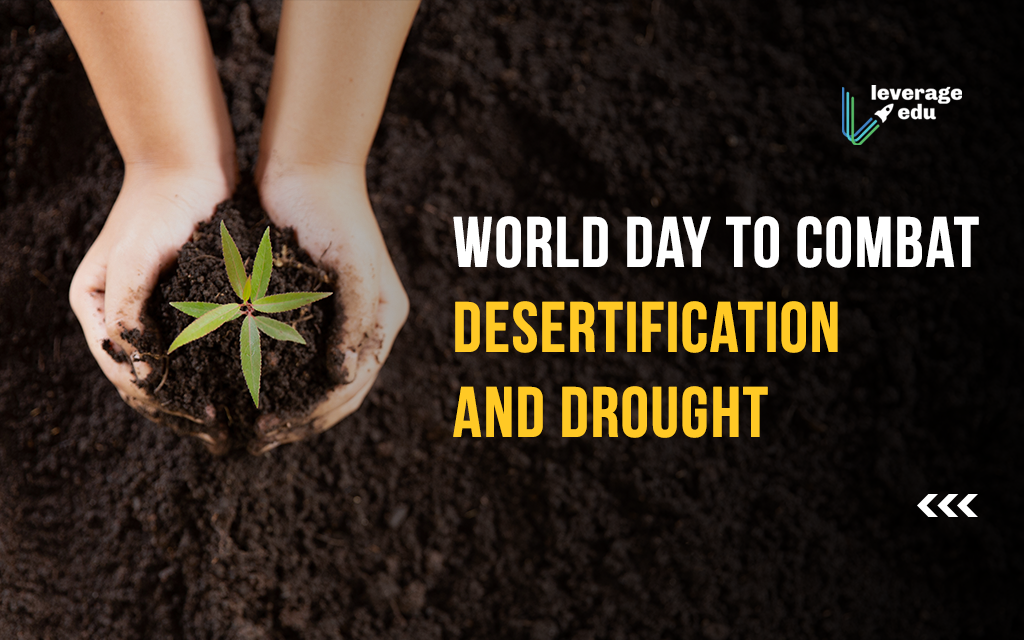Halt desertification now
Friday, 17th June 2022, was this year’s World Day to Combat Desertification and Drought. It is a United Nations (UN) event that promotes awareness about the desertification of the Earth’s drylands and supports effort at combating it. The theme for the 2022 event was “ Rising up from drought together.” The theme is meant to […]

Friday, 17th June 2022, was this year’s World Day to Combat Desertification and Drought. It is a United Nations (UN) event that promotes awareness about the desertification of the Earth’s drylands and supports effort at combating it. The theme for the 2022 event was “ Rising up from drought together.” The theme is meant to encourage people to help protect the planet.
Desertification is the process where what was once a healthy land became degraded. Although climate change is, today, a leading cause of desertification, it could also be caused by deforestation, drought, or over-farming. Desertification happens “When nutrients in the soil become so few that the soil itself is no longer fertile, becoming arid”. Desertification can lead to famine when people are unable to grow crops. Desertification affects areas known as dry lands, which are commonly found in Africa and Asia.
- Hajj: 5 days to deadline, less than half of Nigerian pilgrims airlifted
- NIGERIA DAILY: How Negligence Has Crippled Dreams Of Young Nigerians
In 1994, the United Nations Convention to Combat Desertification (UNCCD) was established with the goal of developing sustainable land management for the general protection of man’s physical environment. According to the UN’s Food and Agriculture Organization (FAO), Africa alone loses four million hectares of her land mass to deforestation every year. In a 2005 report by the same FAO, Nigeria had the highest rate of deforestation in the world. The Director-General of the Nigerian Conservation Foundation, Dr. Mutari Aminu-Kano, recently said Nigeria annually loses about 400,000 hectares of its land to deforestation. Indeed, the threat of deforestation in Nigeria worsened in the past two decades as surface waters including rivers, lakes, ponds, creeks and streams have continued to dry out. The shrinking of Lake Chad by 90 per cent is a classic case.
Land devastations arising from tree felling and related human activities that facilitate deforestation have, in recent years, led to flood disasters and low agricultural yields in Nigeria. The incessant farmers/herders conflict in Nigeria is also a direct consequence of the drastic reduction in the size of arable land needed by farmers and herders for cultivation and grazing respectively. The fight over the diminished size of green land available for farming and grazing unfortunately developed into a serious security challenge because of the failure by successive administrations in the country to take adequate measures that would address deforestation and forestall desertification.
Besides deforestation, so many things are wrong with the unfettered felling of trees. Humans, wildlife, the soil and the climate all have their share of its devastations. Government, over the years, failed to regulate the persistent mass decimation of forests through tree-felling, especially for making wood fuel, which has become a major source of cooking energy for low-income households in most African countries including Nigeria. The cost of cooking gas and kerosene has made wood fuel in the country to become the biggest energy source affordable to most Nigerians. Tree-felling is more pronounced in states located in the north central region of Nigeria, which as part of the Sudan Savannah, covers an extensive area of woodland.
It is scandalous that states affected by massive tree-felling activities including Niger, Kogi, Nasarawa and Kwara have refused to enforce existing laws that prohibit the free felling of trees. In some states, illegal tree fellers enjoy the support of government officials who provide discreet cover for land degraders to perpetrate their detrimental activities. Tree-felling activities go on unabated because most of the states affected by it allowed the forestry department in their respective state ministry of agriculture to collapse. Forestry officers and forest rangers or guards seldom exist in these states.
Without minding the degradation caused to the physical environment, trees are freely felled for commercial purposes and exported to China. Sadly, tree-felling is now the pre-occupation of many peasant farmers who see it as a money-spinning business faster than the annual yields that accrue to them from their farms. Measures must be taken to stop the ongoing massive decimation of Nigeria’s forests in order to forestall desertification; a phenomenon that, if not addressed, could trigger a food crisis amidst a population growing at a rate faster than the growth of the country’s economy.
While the Great Green Wall Initiative (GGWI) of the African Union (AU), which was designed to tackle desertification, land degradation and climate change, remains a commendable project, it has not and is practically not doing enough to achieve this mandate. So much is yet required to be done in the 22 selected countries of the African continent before its 2030 target. We, therefore, call on AU authorities to make financial provisions for the project. The Permanent Secretary in the Ministry of Environment, Engr. Hassan Musa, in his speech at the recent 8th ordinary session of the Council of Ministers of the GGWI, said the anticipated funding for the project was actually not forthcoming.
As we call on state governments to enforce laws that prohibit tree-felling, we equally urge them to resuscitate forestry departments that have become moribund or establish new ones where they are non-existent. The annual ritual of tree planting should earnestly be revived by all tiers of government to support afforestation efforts and halt desertification activities.
